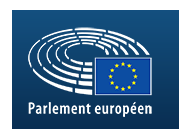Document type : Answer from the European Commission to the European Parliament
Question: Globally, more than 600 million piglets are castrated without anaesthetic every year. More than 100 million such castrations take place in the EU alone. This involves their spermatic cord being crushed with pliers and their testicles cut off, all of which is done with no anaesthetic whatsoever during the castration or pain relief during the healing process. National animal welfare legislation lays down that no painful intervention on a vertebrate animal may be carried out without anaesthetic. Until now there had been an exemption for the castration of piglets until their seventh day of life, as it was assumed that they were less sensitive to pain than older animals. In the meantime it has been scientifically verified that piglets experience considerable pain and stress during castration.
Will the Commission review the lax Regulation (EC) No 889/2008 currently in force to ensure that the section reading ‘castration (...) may be carried out without the application of anaesthesia and/or analgesia’ no longer applies?
Answer: Commission Regulation (EC) No 889/2008 lays down rules which apply only for the production of organic livestock. Regarding physical castration of organic pigs, Article 18 (1) and (2) of this regulation provides that physical castration is allowed in order to maintain the quality of products and traditional production practices, but only under the conditions that any suffering to the animals shall be reduced to a minimum by applying adequate anaesthesia and/or analgesia and by carrying out the operation only at the most appropriate age by qualified personnel.
Castration of male pigs is subject to Directive 2008/120/EC, requiring that a veterinarian must perform the castration under anaesthetic and additional prolonged analgesia after the seventh day of life of the piglet.
It is important to raise awareness of the farmers and other relevant parties of the provisions of this directive in order to avoid unnecessary suffering of animals.
In 2019, the Commission published a study establishing best practices on the production, the processing and the marketing of meat from uncastrated pigs or pigs vaccinated against boar taint (immunocastrated). This study was part of a pilot project proposed by the European Parliament. As a follow up, the Commission is now disseminating the best practices established by the study.




